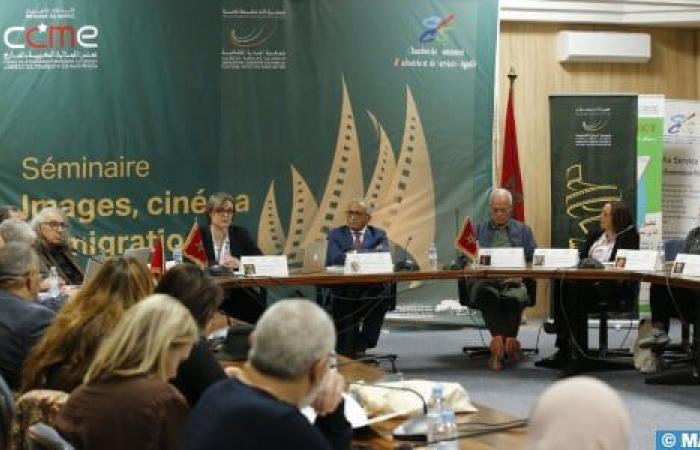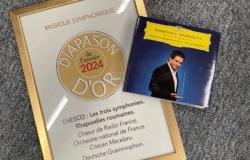Friday, November 15, 2024 at 8:53 p.m.
Agadir – Cinema, as a source and tool of analysis, makes it possible to identify the history of migrations in their complexity, underlined, Friday in Agadir, the participants in a seminar held under the theme “Images, cinema and migrations ”, on the sidelines of the 20th edition of the International Cinema and Migrations Festival.
During this meeting, organized at the initiative of the Council of the Moroccan Community Abroad (CCME) and the “Al Moubadara Attakafiya” Association, the various speakers indicated that through image and sound, the seventh art not only shows the founding otherness of living together, with a focus on the Other or the immigrant, but also contributes to the knowledge of migrations in their complexity and historical depth.
The greatest strength of cinema is social, by sparking a collective debate within societies, they noted, noting that cinema professionals, through their works, remain witnesses to the issues of their time and invite the spectator to accompany them in their reflections on this subject.
According to them, the 7th art also allows us to shine the spotlight on sequences relating to the living, working and integration conditions of migrants in host societies.
Furthermore, the participants made it known that in an increasingly interdependent, interconnected and contradictory world, international migration has become a global issue, marked by the multiplication of security policies, border closures and problems of integration and of racism.
These are all complex issues which must be at the center of the concerns not only of decision-makers, researchers and Human Rights activists, but also of artists of all stripes, they said.
On this occasion, the president of the CCME, Driss El Yazami underlined, in a statement to MAP, that this meeting is intended to be a space for exchanges and debates between specialists from various countries, around questions related to cinema and to the phenomenon of migration.
This seminar, he specified, made it possible to question the image given by cinema to the question of migration, to expose the issues raised relating to it and to discuss the public’s perception of these various dedicated film productions.
Mr. El Yazami, who welcomed the fruitful exchanges that marked the two round tables of this seminar, indicated that most countries have cinematographic production on migration, adding that more and more filmmakers from migration make films.
This seminar was structured around two round tables, the first of which under the theme “The migrant seen by the other in the cinema”, addressed the means in which cinema shapes the perceptions and representations of the migrant, through images that influence the understanding of the social, cultural and political issues linked to migration and the way in which cinema allows us to understand the complex realities of immigration.
Thus, the stereotypes, narratives and emotions conveyed by cinema on migrants were explored, as well as the methods of developing representations on human mobility and migratory issues.
Regarding the second round table entitled “Self-representation: when migrants tell their own story”, it focused on the different ways in which migrants appropriate their image in cinema and the impact of this self-representation. -representation on the construction of identities and the way in which societies perceive migratory realities.
In this regard, the speakers addressed various questions relating in particular to the evolution of the representation of migrants on screen, in addition to the redefinition of cinematographic narratives, social perceptions and identity issues linked to migration.
Filmmakers and researchers from Morocco and abroad, notably from France, the United States, Tunisia and Spain took part in this meeting, initiated in partnership with the Agadir Chamber of Commerce. .






